June 12 stands as one of history’s most eventful days, witnessing the rise and fall of empires, groundbreaking discoveries, and moments that shaped our modern world across centuries of human achievement.

Politics and Government Events on June 12
1963 – Nelson Mandela Sentenced to Life in Prison
South African courts sentenced anti-apartheid activist and ANC leader Nelson Mandela to life imprisonment for sabotage charges. The verdict marked a pivotal moment in the global struggle against apartheid.
His imprisonment galvanized international opposition to South Africa’s racist policies. Mandela’s sacrifice became a powerful symbol of resistance that would eventually help bring down the apartheid system.
1991 – Boris Yeltsin Elected President of Russia
Russian voters participated in their nation’s first democratic presidential election since the fall of the Tsarist regime. Boris Yeltsin emerged victorious in this historic contest that would reshape the former Soviet Union.
The election represented a dramatic shift toward democratic governance in Russia. Yeltsin’s victory accelerated the dissolution of communist control and established new political foundations for the Russian Federation.
1987 – Reagan Challenges Gorbachev at Brandenburg Gate
President Ronald Reagan delivered his famous “tear down this wall” speech at Berlin’s Brandenburg Gate. His bold challenge to Soviet leader Mikhail Gorbachev became one of the Cold War’s most memorable moments.
The speech energized freedom movements across Eastern Europe and intensified pressure on communist governments. Reagan’s words would prove prophetic when the Berlin Wall fell just two years later.
1990 – Russian Federation Declares Sovereignty

The Russian parliament formally declared the sovereignty of the Russian Federation on this historic Russia Day. This declaration marked the beginning of the end for the Soviet Union’s centralized control.
The sovereignty declaration triggered a cascade of independence movements across Soviet republics. Russia’s bold move accelerated the collapse of the USSR and reshaped the global political landscape.
2018 – Trump-Kim Summit in Singapore
President Donald Trump and North Korean leader Kim Jong-un held the first-ever meeting between leaders of their nations in Singapore. The historic summit represented a dramatic shift in U.S.-North Korea relations after decades of hostility.
Both leaders signed agreements aimed at denuclearizing the Korean Peninsula and improving diplomatic ties. The meeting captured global attention and raised hopes for lasting peace in the region.
1975 – Indian Election Crisis Erupts
Judge Jagmohanlal Sinha ruled against Prime Minister Indira Gandhi in the State of Uttar Pradesh v. Raj Narain case. The court declared her election to Parliament invalid and banned her from holding public office.
The verdict triggered a major constitutional crisis that would lead to Gandhi’s declaration of emergency rule. This judicial decision fundamentally altered India’s political trajectory and tested its democratic institutions.
1993 – Nigerian Election Results Annulled
Nigerian voters elected Moshood Kashimawo Olawale Abiola as president in what observers considered a free and fair election. However, military ruler Ibrahim Babangida later annulled the results, sparking nationwide protests.
The annulment deepened Nigeria’s political crisis and extended military rule for several more years. Abiola’s victory represented a brief hope for democratic governance that was quickly crushed by military intervention.
Military and Naval History on June 12
1940 – Allied Forces Surrender at Saint-Valery-en-Caux
General Erwin Rommel achieved a major victory when 13,000 British and French troops surrendered at Saint-Valery-en-Caux during World War II. The German Afrika Korps commander demonstrated the tactical brilliance that would make him legendary.
The surrender represented a significant blow to Allied morale during the Battle of France. Rommel’s success at Saint-Valery-en-Caux enhanced his reputation and contributed to Germany’s rapid conquest of Western Europe.
1944 – American Paratroopers Secure Carentan
The 101st Airborne Division successfully captured the strategic town of Carentan in Normandy during the Battle of Carentan. American paratroopers fought fierce battles to secure this vital transportation hub following D-Day.
The victory connected Utah and Omaha beaches, strengthening the Allied foothold in France. Carentan’s capture demonstrated the effectiveness of airborne operations and advanced the liberation of Western Europe.
1921 – Chemical Weapons Used Against Tambov Rebellion
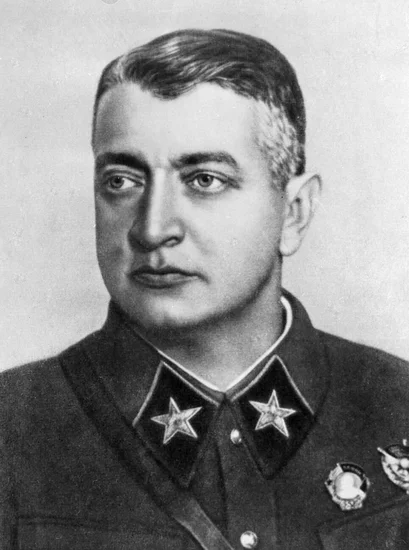
Soviet military commander Mikhail Tukhachevsky ordered the deployment of chemical weapons against peasant rebels in the Tambov Rebellion. This brutal decision helped crush the anti-Bolshevik uprising that had threatened Soviet control.
The use of poison gas marked a dark chapter in early Soviet history and demonstrated the regime’s willingness to use extreme measures. The rebellion’s end solidified Bolshevik power but revealed the harsh methods employed against internal opposition.
1999 – NATO Peacekeepers Enter Kosovo
Operation Joint Guardian commenced as NATO-led peacekeeping forces entered Kosovo as part of the United Nations Kosovo Force (KFOR). The international intervention aimed to restore stability after the devastating Kosovo War.
The peacekeeping mission represented a major test of NATO’s humanitarian intervention capabilities. KFOR’s deployment helped end ethnic violence and established the framework for Kosovo’s eventual independence.
Science and Discovery Milestones on June 12
1979 – First Human-Powered English Channel Flight

Bryan Allen achieved aviation history by piloting the Gossamer Albatross across the English Channel in the first successful human-powered flight. His remarkable feat earned him the second Kremer Prize for aeronautical achievement.
The flight demonstrated the potential of human-powered aircraft and advanced understanding of efficient flight mechanics. Allen’s success inspired continued innovation in lightweight aircraft design and sustainable aviation technology.
1954 – Youngest Non-Martyr Saint Canonized
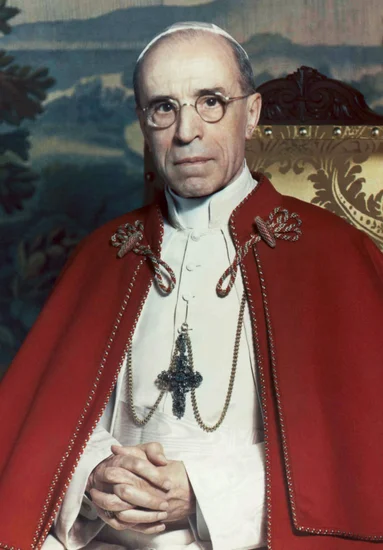
Pope Pius XII canonized Dominic Savio, who died at age 14, making him the youngest unmartyred saint in Roman Catholic Church history at that time. The canonization recognized the exceptional spiritual devotion of this Italian student.
Savio’s sainthood provided a powerful example of youthful sanctity for Catholic youth worldwide. His canonization remained a record until 2017, when even younger saints Francisco and Jacinta Marto were declared saints.
Cultural and Arts Events on June 12
1963 – Epic Film Cleopatra Released
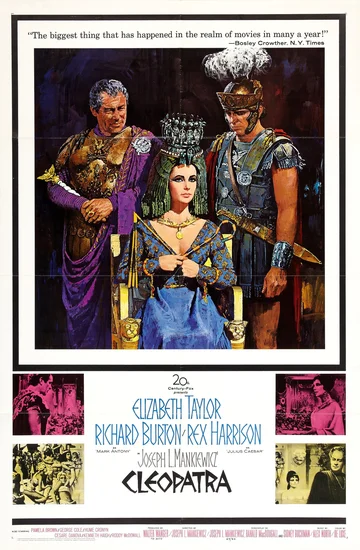
The lavish production Cleopatra, starring Elizabeth Taylor and Richard Burton, premiered in American theaters as the most expensive film ever made at that time. The epic drama captivated audiences with its spectacular sets and star-crossed romance.
The film’s enormous budget and production challenges became legendary in Hollywood history. Cleopatra’s release marked a turning point in epic filmmaking and demonstrated the industry’s willingness to invest heavily in spectacle.
1939 – First Technicolor Horror Film Begins Production
Paramount Pictures commenced filming Dr. Cyclops, breaking new ground as the first horror film shot in three-strip Technicolor. The production marked a significant technological advancement in cinema color photography.
The film’s innovative use of color enhanced the horror genre’s visual impact and influenced future productions. Dr. Cyclops demonstrated how color technology could create more immersive and frightening cinematic experiences.
1981 – Raiders of the Lost Ark Debuts
The adventure film Raiders of the Lost Ark premiered in theaters, launching the iconic Indiana Jones franchise. Steven Spielberg’s direction and Harrison Ford’s charismatic performance created an instant classic that redefined action cinema.
The film’s success revitalized the adventure genre and established new standards for action sequences. Raiders became a cultural phenomenon that spawned sequels, merchandise, and inspired countless adventure films.
1942 – Anne Frank Receives Her Famous Diary

Thirteen-year-old Anne Frank received the diary that would become one of history’s most important Holocaust documents on her birthday. This simple gift would preserve her thoughts and experiences during the Nazi occupation of Amsterdam.
Her diary would later provide the world with a deeply personal account of life in hiding during the Holocaust. Anne’s writings became a powerful testament to human resilience and the importance of preserving historical memory.
Religious and Social Events on June 12
1967 – Interracial Marriage Becomes Legal
The United States Supreme Court ruled in Loving v. Virginia that all state laws prohibiting interracial marriage were unconstitutional. This landmark decision struck down racist marriage laws across the nation.
The ruling represented a major victory for civil rights and personal freedom in America. The Loving decision paved the way for greater acceptance of interracial relationships and challenged discriminatory laws nationwide.
1963 – Civil Rights Leader Medgar Evers Assassinated
NAACP field secretary Medgar Evers was murdered outside his Jackson, Mississippi home by Ku Klux Klan member Byron De La Beckwith. The assassination shocked the nation and galvanized the civil rights movement.
Evers’ death became a rallying cry for civil rights activists and demonstrated the dangerous resistance faced by movement leaders. His sacrifice helped build momentum for the landmark civil rights legislation of the 1960s.
1982 – Nuclear Disarmament Rally in New York
A massive nuclear disarmament rally and concert took place in New York City, drawing hundreds of thousands of participants. The event represented one of the largest peace demonstrations in American history.
The rally reflected growing public concern about nuclear weapons during the Cold War arms race. The demonstration helped maintain pressure on world leaders to pursue arms control agreements.
Business and Economic Events on June 12
1935 – Chaco War Ceasefire Negotiated
Bolivia and Paraguay agreed to a ceasefire that ended the devastating Chaco War over territorial disputes. The conflict had drained both nations’ resources and caused enormous human suffering.
The ceasefire opened the door to eventual peace negotiations that would resolve the territorial dispute. The agreement demonstrated how international mediation could end costly regional conflicts and restore economic stability.
Transportation and Infrastructure on June 12
1950 – Air France Crash Near Bahrain

An Air France Douglas DC-4 crashed near Bahrain International Airport, killing all 46 people aboard. The tragedy highlighted the ongoing safety challenges facing commercial aviation in the early jet age.
The crash prompted investigations into airport safety procedures and aircraft maintenance protocols. Such incidents contributed to the development of improved aviation safety standards worldwide.
1988 – Austral Airlines Flight 046 Crashes

Austral Líneas Aéreas Flight 046, a McDonnell Douglas MD-81, crashed short of the runway at Libertador General José de San Martín Airport, killing all 22 people aboard. The accident underscored the critical importance of proper approach procedures.
The tragedy led to enhanced safety protocols for airport approaches and landing procedures. The crash contributed to ongoing efforts to improve aviation safety standards in South America.
2024 – Mangaf Residential Building Fire

A devastating fire in a residential building in Mangaf, Kuwait City, claimed at least 50 lives. The tragedy highlighted the need for improved fire safety measures in high-density housing.
The incident prompted renewed attention to building safety codes and emergency evacuation procedures. The fire demonstrated the importance of proper fire prevention systems in residential construction.
Sports and Recreation on June 12
1939 – Baseball Hall of Fame Opens
The National Baseball Hall of Fame officially opened its doors in Cooperstown, New York, creating a permanent shrine to America’s pastime. The museum celebrated the sport’s greatest players and preserved baseball’s rich history.
The Hall of Fame’s opening marked a milestone in sports history and established Cooperstown as baseball’s spiritual home. The institution became a pilgrimage destination for baseball fans and helped cement the sport’s cultural significance.
2009 – Iranian Election Protests Begin
A disputed presidential election in Iran sparked widespread protests that challenged the government’s authority. The demonstrations represented the largest political uprising in Iran since the 1979 revolution.
The protests utilized social media to organize resistance and share information with the world. The movement demonstrated the power of digital communication in modern political movements and inspired similar uprisings elsewhere.
2016 – Orlando Nightclub Attack

A gunman killed 49 people and injured 58 others at Pulse, a gay nightclub in Orlando, Florida. The attack shocked the nation and highlighted issues of hate crimes and gun violence.
The tragedy became a rallying point for LGBTQ+ rights and gun control advocates. The Orlando shooting prompted renewed debates about domestic terrorism and the need for enhanced security measures.
Notable Births on June 12
1924 – George H. W. Bush Born

Future President George H. W. Bush was born in Milton, Massachusetts, beginning a life of distinguished public service. His family’s tradition of civic engagement shaped his early character and ambitions.
Bush would serve as Vice President under Ronald Reagan before winning the presidency himself. His leadership during the end of the Cold War and the Gulf War defined his presidential legacy.
1929 – Anne Frank Born

Anne Frank was born in Frankfurt, Germany, to a Jewish family that would later flee to Amsterdam. Her childhood in Germany ended when the Nazi regime’s persecution forced her family to seek refuge abroad.
Her teenage years in hiding would produce the diary that became one of history’s most important Holocaust testimonies. Anne’s writings provided an intimate perspective on the human cost of hatred and persecution.
1915 – David Rockefeller Born
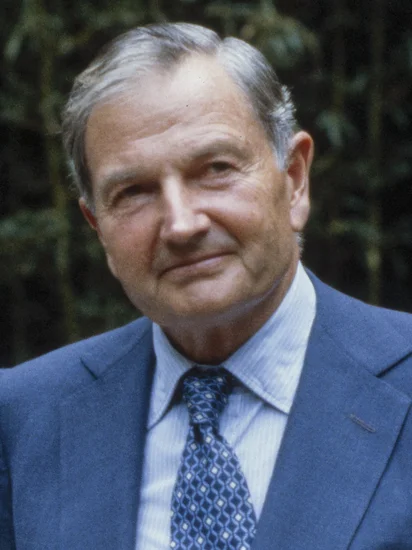
David Rockefeller entered the world as the youngest son of John D. Rockefeller Jr., inheriting one of America’s greatest fortunes. His birth into the prominent Rockefeller family positioned him for a life of influence and philanthropy.
Rockefeller would become a leading banker and philanthropist, shaping American business and charitable giving for decades. His leadership of Chase Manhattan Bank and numerous foundations left a lasting impact on global finance.
1924 – Grete Dollitz Born
German-American guitarist and radio host Grete Dollitz was born in Germany. Her musical talents would eventually lead her to a successful career in American radio broadcasting.
Dollitz’s work helped introduce European musical styles to American audiences through radio programming. Her contributions to broadcasting demonstrated the power of radio to bridge cultural divides.
1958 – Meredith Brooks Born
American singer-songwriter and guitarist Meredith Brooks was born, beginning a journey that would lead to music stardom. Her early exposure to music shaped her artistic development and creative vision.
Brooks would achieve international fame with her hit song “Bitch” and other powerful rock anthems. Her music provided a voice for women’s empowerment and challenged traditional gender roles.
1985 – Dave Franco Born

American actor Dave Franco was born in Palo Alto, California, launching a career that would span comedy and drama. His natural acting abilities and charm made him a sought-after performer in Hollywood.
Franco’s versatility as an actor allowed him to excel in both comedic and dramatic roles. His performances in films like “21 Jump Street” and “The Disaster Artist” showcased his range and talent.
Notable Deaths on June 12
1963 – Medgar Evers Assassinated
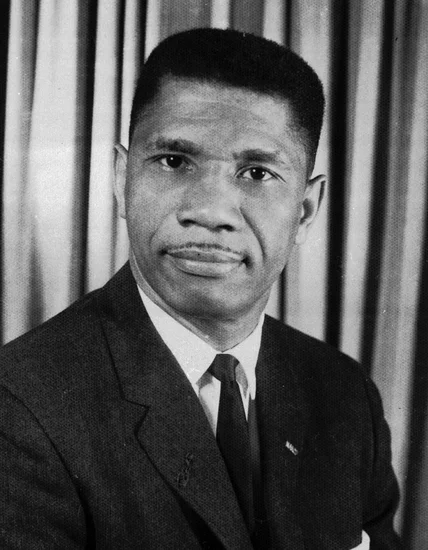
Civil rights leader Medgar Evers was murdered outside his Jackson, Mississippi home by a white supremacist. His death at age 37 cut short a life dedicated to fighting racial injustice and securing voting rights.
Evers’ assassination galvanized the civil rights movement and demonstrated the deadly opposition faced by activists. His sacrifice became a powerful symbol of the struggle for racial equality in America.
2003 – Gregory Peck Dies

Legendary actor Gregory Peck passed away at age 87, ending a distinguished career that spanned six decades. His portrayal of Atticus Finch in “To Kill a Mockingbird” became one of cinema’s most memorable performances.
Peck’s dignity and moral authority on screen made him a beloved figure in American culture. His death marked the end of Hollywood’s golden age and left a void in American cinema.
1982 – Karl von Frisch Dies
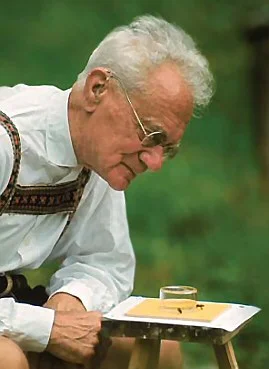
Austrian ethologist Karl von Frisch died at age 95, leaving behind groundbreaking research on animal behavior. His studies of honeybee communication earned him the Nobel Prize in Physiology or Medicine.
Von Frisch’s discoveries about the “dance language” of bees revolutionized understanding of animal communication. His work laid the foundation for modern ethology and advanced scientific knowledge of social insects.
2023 – Silvio Berlusconi Dies
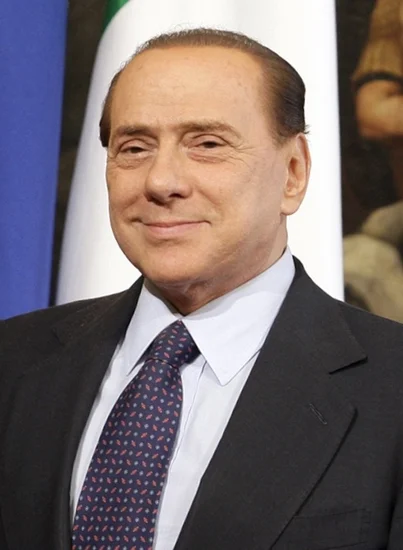
Italian media mogul and former Prime Minister Silvio Berlusconi died at age 86, ending a controversial career that shaped Italian politics and media. His influence extended across business, politics, and sports for decades.
Berlusconi’s death marked the end of an era in Italian public life and European politics. His complex legacy included both significant business achievements and numerous political scandals.
1980 – Masayoshi Ōhira Dies
Japanese Prime Minister Masayoshi Ōhira died at age 70 while serving in office. His death during a political crisis created uncertainty about Japan’s leadership and economic direction.
Ōhira’s passing highlighted the intense pressures facing Japanese political leaders during a period of rapid economic change. His death necessitated new elections and reshaped Japanese politics.
2024 – Jerry West Dies

Basketball legend Jerry West passed away at age 86, ending a remarkable career as player and executive. His silhouette became the iconic NBA logo, symbolizing excellence in professional basketball.
West’s death marked the loss of one of basketball’s greatest figures and a link to the sport’s golden era. His contributions as both player and executive helped shape the modern NBA.
Holidays and Observances on June 12
Russia Day

Russia celebrates its national day commemorating the declaration of sovereignty by the Russian Federation in 1990. The holiday marks Russia’s emergence as an independent nation after the collapse of the Soviet Union.
Citizens participate in parades, cultural events, and patriotic ceremonies throughout the country. Russia Day represents national pride and the country’s commitment to democratic governance and sovereignty.
Philippine Independence Day
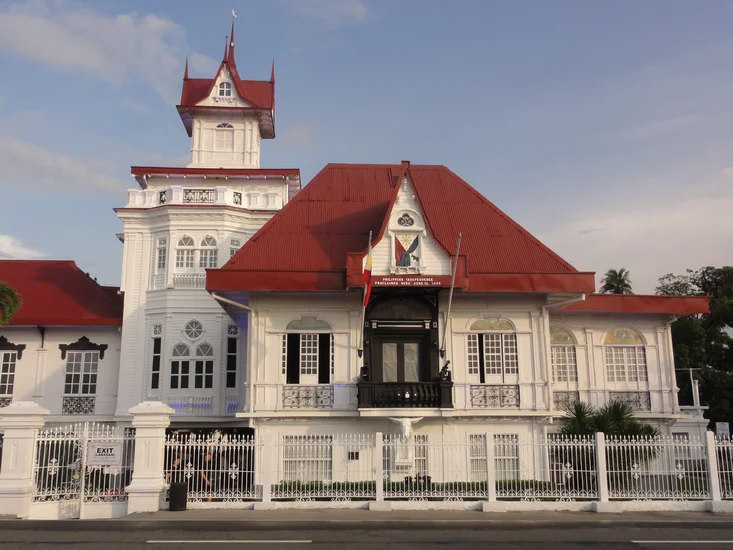
The Philippines celebrates its independence from Spanish colonial rule achieved in 1898. The holiday honors the sacrifices of Filipino revolutionaries who fought for freedom and national sovereignty.
Filipinos worldwide participate in flag-raising ceremonies, parades, and cultural celebrations. Independence Day reinforces Filipino national identity and commemorates the struggle for self-determination.
Loving Day
The United States observes Loving Day to commemorate the Supreme Court’s decision in Loving v. Virginia, which legalized interracial marriage. The holiday celebrates love triumphing over prejudice and legal discrimination.
Couples and supporters gather for ceremonies that honor the Loving family’s courage in challenging racist laws. The observance promotes racial harmony and celebrates the diversity of American families.
World Day Against Child Labour

The international community observes World Day Against Child Labour to raise awareness about the exploitation of children worldwide. The day promotes efforts to eliminate child labor and protect children’s rights.
Organizations conduct campaigns highlighting the need for education and economic opportunities for families. The observance mobilizes support for policies that protect children from dangerous and exploitative work conditions.
